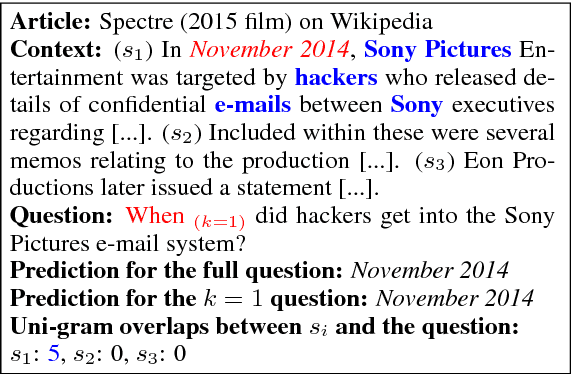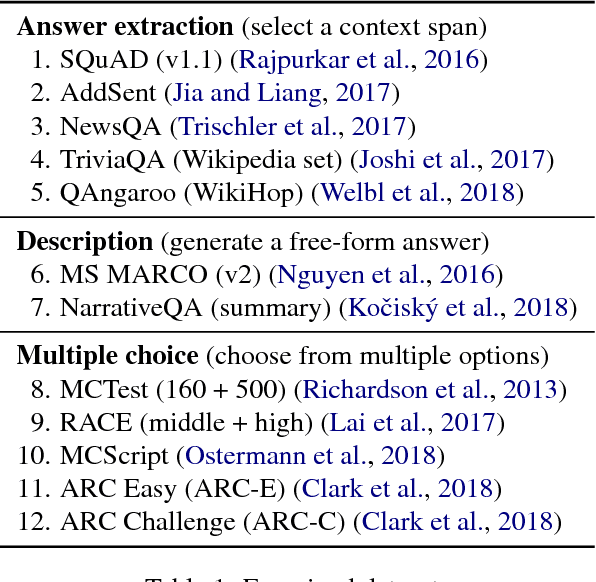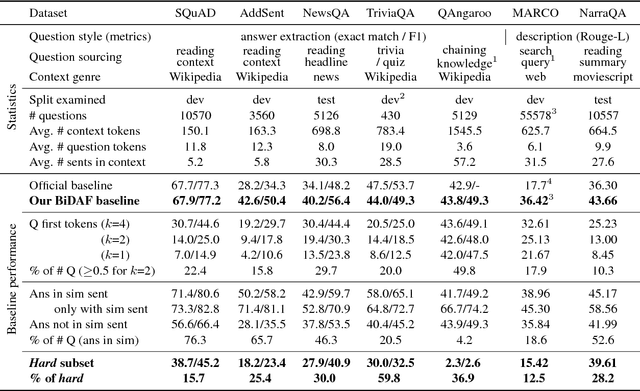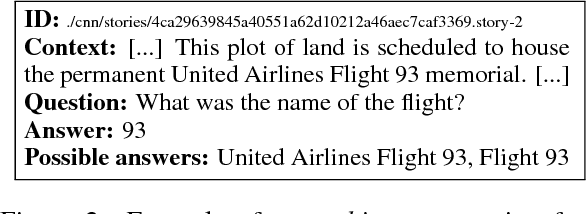What Makes Reading Comprehension Questions Easier?
Paper and Code
Aug 28, 2018



A challenge in creating a dataset for machine reading comprehension (MRC) is to collect questions that require a sophisticated understanding of language to answer beyond using superficial cues. In this work, we investigate what makes questions easier across recent 12 MRC datasets with three question styles (answer extraction, description, and multiple choice). We propose to employ simple heuristics to split each dataset into easy and hard subsets and examine the performance of two baseline models for each of the subsets. We then manually annotate questions sampled from each subset with both validity and requisite reasoning skills to investigate which skills explain the difference between easy and hard questions. From this study, we observed that (i) the baseline performances for the hard subsets remarkably degrade compared to those of entire datasets, (ii) hard questions require knowledge inference and multiple-sentence reasoning in comparison with easy questions, and (iii) multiple-choice questions tend to require a broader range of reasoning skills than answer extraction and description questions. These results suggest that one might overestimate recent advances in MRC.
 Add to Chrome
Add to Chrome Add to Firefox
Add to Firefox Add to Edge
Add to Edge